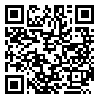Volume 4, Issue 1 (9-2010)
2010, 4(1): 63-76 |
Back to browse issues page
Download citation:
BibTeX | RIS | EndNote | Medlars | ProCite | Reference Manager | RefWorks
Send citation to:



BibTeX | RIS | EndNote | Medlars | ProCite | Reference Manager | RefWorks
Send citation to:
Taghiloo S, Salehi M, Shokri O. Structural equation modeling in explaining the relation between personality, social problem solving and subjective well - being. Journal title 2010; 4 (1) :63-76
URL: http://rph.khu.ac.ir/article-1-88-en.html
URL: http://rph.khu.ac.ir/article-1-88-en.html
1- , s.taghiloo@iau-astara.ac.ir
Abstract: (11406 Views)
This study aimed at predicting subjective well-being by using variables including extroversion, neuroticism, constructive problem solving, and dysfunctional problem solving. To do this, 528 students of Tehran’s Islamic Azad Universities were selected through multistage sampling, and then they completed five factor personality inventory, social problem -solving inventories, and subjective well – being scales. Data analysis, using structural equation modeling (SEM), showed that in general 47 percent of variance in subjective well – being could be explained by extroversion, neuroticism, constructive problem solving, and dysfunctional problem solving. The results indicated that extroversion positively and neuroticism and dysfunctional problem solving negatively predicted the subjective well – being, and neuroticism predicted dysfunctional problem solving positively and constructive social problem solving negatively. Extroversion didn’t not predict the constructive problem solving significantly, even though it predicted dysfunctional problem solving negatively. Moreover, the relation between constructive problem solving and subjective well- being wasn’t significant. Based on the results of this research, extroversion, neuroticism, constructive problem solving and dysfunctional problem solving had significant and determinant role in explaining subjective well – being.
Keywords: Structural equation modeling, social problem solving, Personality, subjective well – being
Type of Study: Research |
Published: 2010/09/15
Published: 2010/09/15
Send email to the article author
| Rights and permissions | |
 | This work is licensed under a Creative Commons Attribution-NonCommercial 4.0 International License. |





